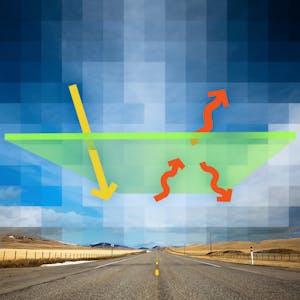Global Warming II Create Your Own Models in Python
This class provides a series of Python programming exercises intended to explore the use of numerical modeling in the Earth system and climate sciences. The scientific background for these models is presented in a companion class, Global Warming I: The Science and Modeling of Climate Change. This class assumes that you are new to Python programming (and this is indeed a great way to learn Python!), but that you will be able to pick up an elementary knowledge of Python syntax from another class or from on-line tutorials.
None
Syllabus
Syllabus - What you will learn from this course
Week 1
Time-Dependent Energy Balance Model
Week 2
Iterative Runaway Ice-Albedo Feedback Model
Week 3
Ice Sheet Dynamics
Week 4
Pressure, Rotation, and Fluid Flow
Week 5
A Model of Climate Changes Today
FAQ
When will I have access to the lectures and assignments?
Access to lectures and assignments depends on your type of enrollment. If you take a course in audit mode, you will be able to see most course materials for free. To access graded assignments and to earn a Certificate, you will need to purchase the Certificate experience, during or after your audit. If you don't see the audit option:
What will I get if I purchase the Certificate?
When you purchase a Certificate you get access to all course materials, including graded assignments. Upon completing the course, your electronic Certificate will be added to your Accomplishments page - from there, you can print your Certificate or add it to your LinkedIn profile. If you only want to read and view the course content, you can audit the course for free.
Is financial aid available?
Yes. In select learning programs, you can apply for financial aid or a scholarship if you can’t afford the enrollment fee. If fin aid or scholarship is available for your learning program selection, you’ll find a link to apply on the description page.
Reviews
Really good course. Short, content-filled lectures and practical application!
I would love some more excercises, more modeling concepts. A great experience after all!
Great course, really interesting! The difficulty of the course didn't follow a linear growth, as week 4 was much more difficult than the others.
